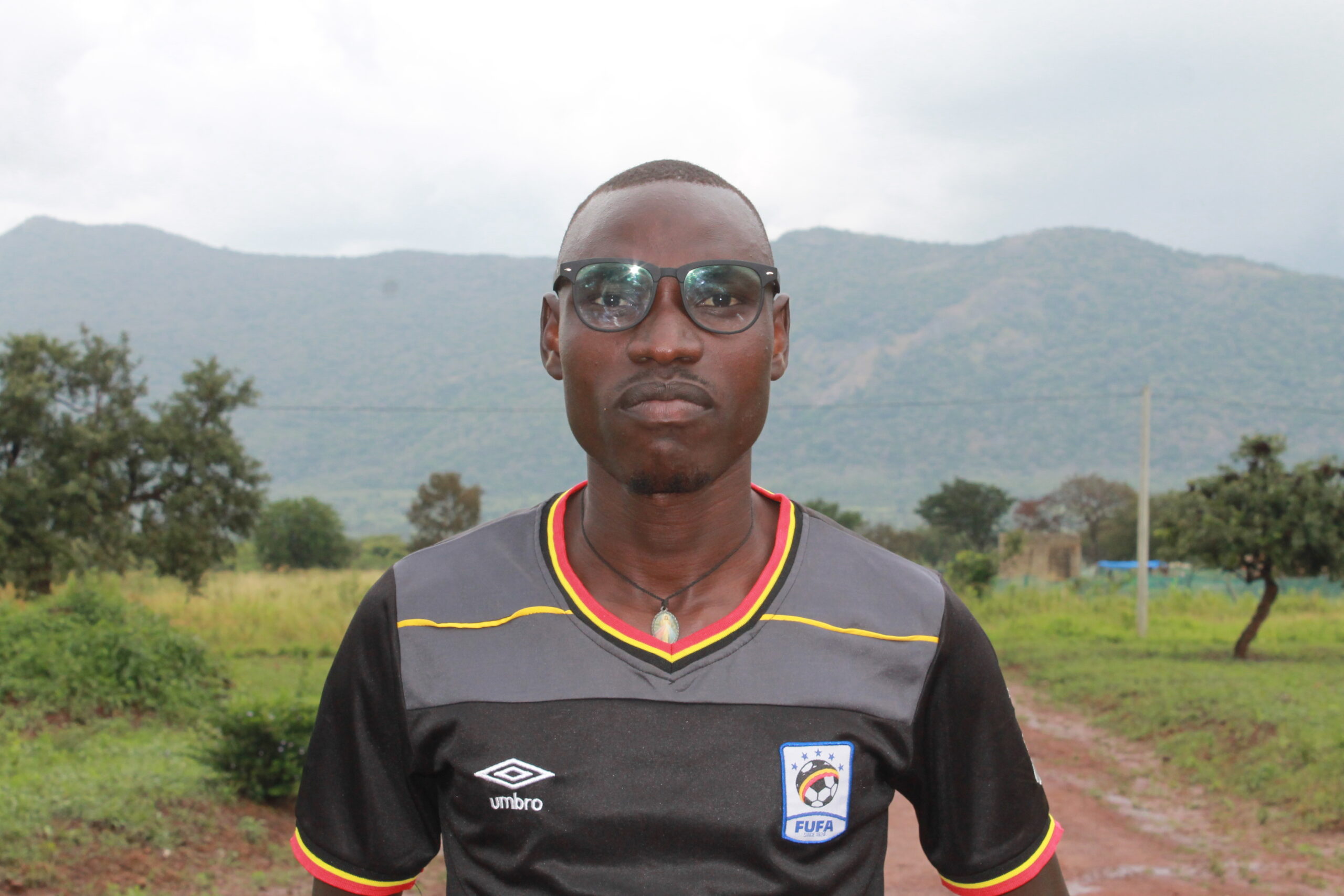
 Speak FM
Speak FM

 Speak FM
Speak FM
18 August 2023, 3:47 pm
By Emmy Daniel Ojara
On Wednesday 10th June 2017 a group of unknown men wielding bows and arrows and spears attacked and killed at least five residents of Apaa Township, an area contested for by the Madi tribesmen of Adjumani district and Acholi community of Amuru district.
The incident occurred at night. Animals and poultry were not spared with hundreds of them slaughtered by the attackers. Food items were destroyed, and dozens of grass-thatched huts were set ablaze. 27 people were also reportedly injured during the attack.
The area under contention covers 20 square kilometers of land in a contested wildlife reserve gazetted in 2002.
It was a normal Thursday afternoon, when the Amuru district chairperson, Michael Lakony approached journalists at the Northern Uganda Media Centre (NUMEC) in then Gulu Municipality requesting for their services to travel with him to Apaa Township following the attack.
At the media center was about a dozen of media practitioners at that time, however, only a handful accepted the district boss’ request. NUMEC is where media practitioners in Northern Uganda convene to undertake their different tasks.
Every journalist wishes to cover a selling story, which among them is the Apaa land dispute, pitting government agencies such as the Uganda Wildlife Authority (UWA), National Forestry Authority (NFA), and members of the Acholi and Madi tribesmen. All these sects claim ancestral and administrative ownership of the area.
But Apaa had become no-go zone for journalists based on the numerous security threats associated with it. Everyone in that area is a friend and enemy of journalists depending on the time and section you are meeting.
The most recent news that had made rounds at that time was the undressing of elderly women in the area before government ministers and top security chiefs in protest of the decision to demarcate the area. This happened on 17th April 2015.
Lakony’s plight for journalists was welcomed by three youthful journalists after minutes of reflection, as the others objected to alluding to security threats due to the nature of the fresh attack.
The three of us (journalists) who accepted to travel to Apaa Township to cover the story and assess the situation on the ground included, Emmy Daniel Ojara of Gulu Fm and freelance news reporter for Uganda Radio Network (URN), and Paidha Fm, Johinisani Ocakacon of Radio Rupiny and Michael Ojok of Speak Fm.
Off in Lakony’s official pick-up vehicle we set off for Apaa Township at about 2:00 p.m.
We were four in the vehicle (Lakony Michael, Emmy Daniel Ojara, Johinisani Ocakacon, and Michael Ojok).
We all sat quietly in the vehicle and on empty stomachs, our minds were full of uncertainties about what awaited us. This move was not sanctioned by any of our editors, we only notified our colleagues left at the media center.
Apaa Township is about 70 kilometers away from Gulu Town. It is about a two hours drive on the Marram road passing through Amuru Town Sub County in Amuru district, and it has the worst telecommunication network.
All throughout the journey there was a tense in the vehicle. The district boss, Michael Lakony who drove us was at that time an amateur in driving. There were logs spread almost all through a 10-kilometer stretch to the Apaa Trading Centre.
We reached the Apaa junction, the main entry to Apaa Township’s market at around 4:00 p.m.
We were welcomed by the sight of a somber mood of about 1,000 people comprising babies, mid-aged children, youth, and the elderly of all genders who had gathered in the small market, looking pale, sad, angry, weak, tired, and hopeless.
As we disembarked from the vehicle, a section of them, mainly youth and men, started approaching us to confirm who had come.
Upon noticing the district chairperson and the sight of journalists, they started crying as they narrated their ordeal and recounted what had happened. Among them were survivors of the attack who had fled their homes for safety at the trading center.
After a brief talk, we were informed that the vehicle could not access the areas where the attack occurred because there was no clear path and we had to cross water streams and walk through valleys.
With our phones, notebooks, and recorders, dressed in our official attires, and joined by a section of community members, we embarked on our journey to the thicket, the death zone, where the overnight attack occurred.
As we move, we were cautioned to be a brother’s eye and ear, watch your sides, watch your back, watch your fronts lest you might be shot with an arrow or spear. The residents believed that some of the attackers could still be hiding in the bush to kill anyone who will appear in the area.
I carried a backpack, it had a laptop, notebook, and recorder. This was my shield, I had confidence built in me.
Walking close to ten kilometers into the thicket, and crossing a stream, we were met with terrible sights, smells, and sounds. Flies were buzzing all over from a banana plantation.
This could be an indication of a corpse, one person said. We all agreed to move and give it a check.
Reaching there, under the banana plantation was the body of a man in his late 40s, lying on his back, his hands raised up and an arrow pierced through his chest. He was dead.
The deceased was wearing a jacket.
At a short distance was another man lying on his stomach with a spear piercing through his back, he was dead.
In his compound was the carcass of two goats, and chickens, butchered with pangas. Grains were spread in the compound, and an MTN sim card pack was left behind.
The journey had become scarier with the discovery of the two corpses. We were not only fearing for our lives but also wondered why these people had been murdered, and why the livestock and poultry were not spared.
Quickly, we recomposed our confidence and agreed that none of the corpses should be left behind. We had no stretcher, and could not carry them on our backs.
Quickly, a local stretcher was made from reeds and torn clothes. Up, we assembled the bodies on it. It became everyone`s responsibility to carry the bodies in a rotational manner.
We (journalists) were not spared, we dropped our phones, packed our notebooks and recorders, and joined in to support.
The continuous search led to the discovery of two more bodies, all male. As the sun set, fresh fear engulfed us and everyone agreed that we call off the search until the next day.
We then embarked on our return journey to the trading center with the four bodies. It was already nightfall and dark. The usual routine of watching your colleague was the warning we all received before setting off.
After reaching the center, we bundled the bodies into the back of our vehicle, had a short communication with the residents, and set off for Gulu Town with a few people from the area to watch over the bodies.
At about 1:00 am in the night we reached Gulu Regional Referral Hospital mortuary, and notified the hospital administrators and a few leaders who then allowed the bodies to be kept there for some days.
I am not a fan of viewing dead bodies, even for relatives but with journalism I became part of one. I had to put journalism aside at that time and uphold my sense of ‘’humanity’’.
This is an experience that will live with me for the rest of my life, as a practicing journalist and as an advocate for humanity. I phrase it, ‘’The Ghost of Apaa Land Conflict’’.
To date, conflicts continue to happen in Apaa Township over the ownership of the area, the government continues to threaten the residents that they will take over the area.
So far, 20 people in the area have reportedly lost their lives due to the conflict since 2012, and several were injured. Schools and health facilities also remain closed due to the same.
There have been several interventions from the religious, cultural, and government to address the conflict, but not much has yielded fruits.
President Yoweri Museveni has now appointed the judicial commission of inquiry into the land dispute with the aim to find lasting solutions.
Emmy Daniel Ojara is the Sub News Editor for Speak Fm, and an advocate for humanity.